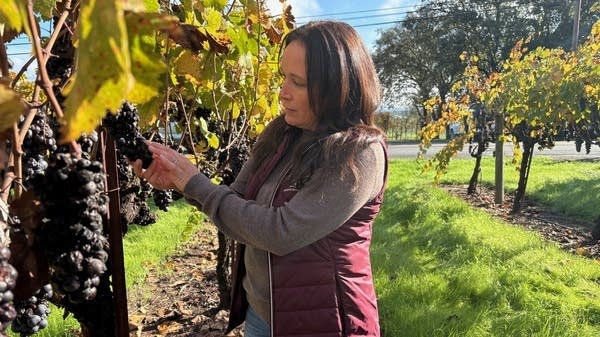Sometimes taking a vow of poverty is easier said than done
Sister Monica Clare had to pay off more than $100,000 before becoming a nun.

What subject does money not touch? “Religion,” you might say. Au contraire.
In the latest season of the Marketplace podcast "This is Uncomfortable," host Reema Khrais spoke with Sister Monica Clare — Sister Superior at the Community of St. John the Baptist, an Episcopal convent in New Jersey — about her personal finances and journey to nunhood. Clare was required to pay off more than $100,000 in debt before she could enter that vocation.
Khrais spoke to “Marketplace Morning Report” host David Brancaccio about her reporting. The following is an edited transcript of their conversation.
David Brancaccio: Owing money, debt can get in the way of a person following a religious calling.
Reema Khrais: Yeah. Many Catholic and Episcopal convents have strict policies: If you have debt, you can't join. And it comes down to the fact that it is hard to make timely debt payments when you've taken a vow of poverty. Sister Monica Clare, she told me that she spent more than a decade paying off her debt before she could take the first steps towards becoming a nun, and this is holding back a lot of people. There was this study from a few years back that found that the number of nuns in America has declined 76% over the last 50 years, and student debt is one of the biggest barriers.
Brancaccio: Student debt. Now, the Catholic Church has tens of billions of dollars. The Episcopal Church has at least a couple billion. The wider hierarchies can't help out with this debt?
Khrais: That brings me to another interesting fact about convents. They are actually financially independent from the larger church. Sister Monica Clare explained it to me this way:
Sister Monica Clare: There's this misconception that we're supported by the church, but we're not. We're totally self-supporting. And that becomes very difficult sometimes, because nonprofits are always struggling to break even. It's really, as you know, it's very difficult.
Brancaccio: All right. Now, at a personal level — vow of poverty. How does sister Monica process that?
Khrais: When I talked with her about it, she explained it to me like this:
Clare: Poverty doesn't mean deprivation. I thought it did, but it just means you take really good care of what you have, and you only buy what you absolutely need.
Khrais: So in practice, that means giving up personal ownership. They give away material belongings, any savings go to the church, they give over their car, donate their clothes, and everything becomes shared. But that doesn't mean they live with nothing. The sisters do get a small monthly allowance — about $50.
Brancaccio: Now, my wife has two aunts who are Catholic nuns — Franciscans — who've taken vows of poverty, and their order is caring for them now that they're elderly. What about the golden years for Sister Monica?
Khrais: You know, I asked her, and it turns out, nuns don't really retire. Their work might change based on their physical ability, but most of them entered religious life with the intention of spending all of their days in this community, and most convents will care for them with the help of donations and the support of the broader religious community.







!["I think [AI] is really cool. There is stuff out there that is fun to watch," said Bella Falco of Denver, Colorado. "There are also things that starting to really scare me, like fake creators."](https://img.apmcdn.org/cb0a9a7e54db934026285b941f4b74ded3dab5ea/widescreen/53f6b2-20251113-bella-falco-sitting-on-a-striped-couch-with-a-mug-600.jpg)





